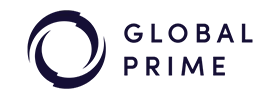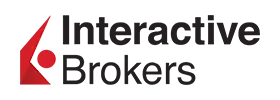Forex trading has gained remarkable traction in Canada over the past decade, offering both novice and experienced traders an opportunity to capitalize on the global financial markets. With advancements in technology and accessibility, Canadian traders now have a wealth of brokers and trading options to explore. However, navigating the Forex market requires careful consideration of regulatory standards, legal trading forms, and broker reliability to ensure a secure and profitable experience. This guide delves into the essentials of Forex trading in Canada, empowering you to make informed decisions.
Below you can find a list with the best Forex brokers regulated in Canada:
Top 9 Forex Brokers in Canada
-
Fusion Markets
- Australia regulated broker
- MT4, MT5, TradingView, Ctrader
- Leverage up to 500
Trading InstrumentsDeposit Methods- Commodities CFDs
- Crypto CFDs
- Forex CFDs
- Indices CFDs
- Metals CFDs
- Stock CFDs
-
FP Markets
- Australia and CySEC regulated broker
- MT4/MT5, TradingView, Ctrader, Iress
- EUR/USD spread from 0.0 pips
Trading InstrumentsDeposit Methods- Commodities CFDs
- Crypto CFDs
- Energy CFDs
- Forex CFDs
- Indices CFDs
- Metals CFDs
- Stock CFDs
-
Pepperstone
- Australia and CySEC regulated broker
- MT4/MT5, TradingView, Ctrader, Iress
- EUR/USD spread from 0.0 pips
Trading InstrumentsDeposit Methods- Commodities CFDs
- Crypto CFDs
- Energy CFDs
- Forex CFDs
- Indices CFDs
- Metals CFDs
- Stock CFDs
-
Axi
- Raw spreads start from 0.0 pips
- Offers order execution faster than standard ECN model
- Axi Select Funded Trader Program offers funding up to $1 million
Trading InstrumentsDeposit Methods- Commodities CFDs
- Crypto CFDs
- Forex CFDs
- Indices CFDs
- Metals CFDs
- Stock CFDs
-
IG
- Offers different account types, including DMA (Direct Market Access) one
- Offers turbo warrants on forex pairs, commodities, indices, and equities
- Supports popular platforms like MT4 and TradingView as well as ProRealTime, L2, and more
Trading InstrumentsDeposit Methods- Bond Futures
- Bond Options
- Bond Spread Betting
- Bonds CFDs
- Commodities CFDs
- Commodity Futures
- Commodity Options
- Commodity Spread Betting
- Crypto CFDs
- Crypto Options
- Crypto Spread Betting
- Currency Futures
- Energy CFDs
- Energy Futures
- Energy Options
- Energy Spread Betting
- ETF CFDs
- ETF Options
- ETF Spread Betting
- Forex CFDs
- Forex Options
- Forex Spread Betting
- Index Futures
- Index Options
- Index Spread Betting
- Indices CFDs
- Interest Rate Futures
- Metal Futures
- Metal Options
- Metals CFDs
- Metals Spread Betting
- Share CFDs
- Stock CFDs
- Stock Options
- Stock Spread Betting
- US Stock CFDs
- US Stock Options
- US Stock Spread Betting
-
eToro
- Popular broker for social trading
- Trading is conducted on innovative in-house platform
- Offers both investing and trading products
Trading InstrumentsDeposit Methods- Commodities CFDs
- Crypto CFDs
- ETF CFDs
- Forex CFDs
- Indices CFDs
- Metals CFDs
- Share CFDs
- Stock CFDs
- US Stock CFDs
-
Admirals
- Trade using MetaTrader 4 and 5, as well as Admirals' specialized plugins for additional functionality.
- Access forex, shares, indices, commodities, ETFs, bonds, and cryptocurrency CFDs.
- Admirals is overseen by top-tier regulatory bodies: FCA, ASIC, CySEC, and EFSA, assuring transparency and customer security.
Trading InstrumentsDeposit Methods- Bonds CFDs
- Commodities CFDs
- Crypto CFDs
- Energy CFDs
- ETF CFDs
- Forex CFDs
- Indices CFDs
- Metals CFDs
- Share CFDs
- Stock CFDs
- US Stock CFDs
-
Global Prime
- Australia regulated broker
- Advanced MT4
- $0 Minimum Account Size
Trading InstrumentsDeposit Methods- Commodities CFDs
- Forex CFDs
- Indices CFDs
- Metals CFDs
-
Interactive Brokers
- Providing access to more than 135 global markets: Forex, Cryptocurrencies, Bonds, Commodities and Stocks
- Seamless integration with third-party research platforms and API access for automated trading and portfolio management.
- Advanced trading tools, such as algorithmic trading options, which allow professional-level trading executions.
Trading InstrumentsDeposit Methods- Bond Futures
- Bonds CFDs
- Commodities CFDs
- Crypto CFDs
- ETF CFDs
- Forex CFDs
- Indices CFDs
- Metals CFDs
- Mutual Funds
- Share CFDs
- Stock Options
Brokers Compared by Spread
| Brand | Commission per lot | |
|---|---|---|
| Fusion Markets | AVG 0.93 pips | $0 Classic Account, $4.50 round turn on Zero Account |
| FP Markets | AVG 1.2 pips | $0 Standard Account; $6 round turn on Pro Account |
| Pepperstone | AVG 1.1 pips | $0 (Standard Account), $7 round-turn (Razor Account, TradingView, MT4, MT5), $6 round-turn (Razor Account, cTrader) |
| Axi | AVG 1.2 pips | $0 on Standard Account; $7 round trip on Pro Account |
| IG | MIN 0.6 pips | $0 |
| eToro | AVG 1 pips | $1 or $2 (stocks only) |
| Admirals | AVG 0.1 pips | $3 per lot |
| Global Prime | AVG 0.96 pips | $0 Standard Accounts; $7 round turn on Raw Accounts |
| Interactive Brokers | AVG 0.2 pips | From 0.08 to 0.20 bps x trade size |
FX Brokers Deposit Method Comparison
| Brand | Minimum deposit | |
|---|---|---|
| Fusion Markets | $0 | |
| FP Markets | $50 (AU$100) | |
| Pepperstone | $0 | |
| Axi | $0 | |
| IG | $50 | |
| eToro | $50 or $100 based on country ($10 for the UK) | |
| Admirals | $100 ($1 for Invest MT5 Account) | |
| Global Prime | $0 | |
| Interactive Brokers | $0 |
Brokers by Regulator
| Brand | Maximum leverage | |
|---|---|---|
| Fusion Markets | 1:500 (ASIC | Pro Account), 1:30 (ASIC | Retail Account), 1:500 (VFSC | Retail Account) | |
| FP Markets | 1:500 (CySEC | Pro Account), 1:30 (ASIC | Retail Account), 1:30 (CySEC | Retail Account), 1:500 (FSAS | Retail Account) | |
| Pepperstone | 1:500 (CySEC | Pro Account), 1:500 (SCB | Pro Account), 1:30 (ASIC | Retail Account), 1:30 (CySEC | Retail Account), 1:30 (DFSA | Retail Account), 1:30 (FCA | Retail Account), 1:200 (SCB | Retail Account) | |
| Axi | 1:500 (Elite Account), 1:400 (Pro Account), 1:30 (ASIC | Retail Account), 1:30 (CySEC | Retail Account), 1:30 (DFSA | Retail Account), 1:30 (FCA | Retail Account), 1:500 (SVGFSA) | |
| IG | 1:222 (BaFin | Pro Account), 1:30 (ASIC | Retail Account), 1:30 (BaFin | Retail Account), 1:200 (BMA | Retail Account), 1:30 (FCA | Retail Account) | |
| eToro | 1:400 (CySEC | Pro Account), 1:30 (CySEC | Retail Account), 1:400 (FSAS | Retail Account) | |
| Admirals | 1:500 (ASIC | Pro Account), 1:30 (ASIC | Retail Account), 1:30 (CySEC | Retail Account), 1:30 (FCA | Retail Account), 1:1000 (FSAS | Retail Account), 1:500 (FSCA | Retail Account), 1:100 (JSC | Retail Account) | |
| Global Prime | 1:500 (ASIC | Pro Account), 1:30 (ASIC | Retail Account), 1:500 (VFSC) | |
| Interactive Brokers | 1:30 (ASIC | IBKR Lite), 1:30 (CBI | IBKR Lite), 1:30 (FCA | IBKR Lite), 1:25 (JFSA | IBKR Lite), 1:20 (MAS | IBKR Lite), 1:500 (Pro Account) |
Forex Brokers Platform Availability
| Brand | FX pairs to trade | |
|---|---|---|
| Fusion Markets | cTrader, MetaTrader 4, MetaTrader 5, TradingView | |
| FP Markets | cTrader, TradingView | |
| Pepperstone | MetaTrader 4, MetaTrader 5, Proprietary Mobile, Proprietary Web | |
| Axi | MetaTrader 4 | |
| IG | MetaTrader 4, Proprietary Web, TradingView | |
| eToro | Proprietary | |
| Admirals | MetaTrader 4, MetaTrader 5 | |
| Global Prime | MetaTrader 4 | |
| Interactive Brokers | Proprietary Mobile, Proprietary Web |
Comprehensive Comparison of the Best Canadian Forex Brokers
Legal Forms of Forex Trading in Canada
Forex trading in Canada is governed by robust regulatory frameworks, ensuring that traders can engage in a variety of legal trading forms while adhering to high standards of transparency and security. Below are the primary forms of Forex trading available:
- Spot Trading
Spot trading is one of the most straightforward and popular methods of Forex trading. It involves the immediate exchange of one currency for another at the prevailing market rate. Traders leverage real-time market data to execute trades, benefiting from price fluctuations in currency pairs.
- CFDs (Contracts for Difference)
CFDs allow traders to speculate on currency price movements without owning the underlying asset. This form of trading is particularly attractive due to its flexibility, enabling traders to profit from both rising and falling markets. However, CFDs come with significant risk, and Canadian regulators impose strict guidelines to ensure trader protection.
- Futures
Forex futures are standardized contracts that obligate traders to exchange a specific amount of currency at a predetermined price and date. These contracts are often traded on regulated exchanges and are commonly used by institutional investors to hedge against currency risk.
- Options
Options give traders the right, but not the obligation, to buy or sell a currency at a set price within a specific timeframe. This trading form is favored by those seeking to limit their potential losses while maintaining upside potential.
- Forwards
Forward contracts are customizable agreements between two parties to exchange currencies at a future date and specified price. Unlike futures, forwards are traded over-the-counter (OTC), offering more flexibility but less transparency.
Restrictions on Forex Trading in Canada
Canadian regulators prioritize the safety and fairness of Forex trading by implementing specific restrictions to protect retail traders. Below are some of the key limitations:
- Leverage Caps
To minimize the risk of substantial losses, leverage for retail traders is capped. IIROC regulations typically restrict leverage ratios to 50:1 or lower, depending on the currency pair. This contrasts sharply with higher leverage limits offered in less regulated markets.
- Prohibition of Binary Options
Binary options, which involve all-or-nothing bets on price movements, are banned in Canada due to their high-risk nature and potential for fraud. This restriction helps safeguard Canadian traders from unregulated schemes.
- Cryptocurrency-Based Forex Trading
While cryptocurrency trading is legal in Canada, Forex brokers offering fiat-crypto trading pairs must adhere to stringent regulatory requirements. This ensures transparency and mitigates the risks associated with highly volatile cryptocurrency markets.
- Advertising and Promotional Rules
Forex brokers targeting Canadian traders must comply with strict advertising standards. This includes clear disclaimers about risks and prohibitions against misleading claims or promises of guaranteed profits.
Who Regulates Forex Trading in Canada?
Forex trading in Canada is closely monitored by several regulatory bodies, ensuring that traders operate within a safe and transparent environment:
- Investment Industry Regulatory Organization of Canada (IIROC)
IIROC is the primary regulatory authority for Forex brokers in Canada. It oversees the operations of investment firms and ensures they comply with stringent standards related to capital adequacy, risk management, and client protection.
- Provincial Securities Commissions
Each Canadian province has its own securities regulator, such as the Ontario Securities Commission (OSC) and the British Columbia Securities Commission (BCSC). These bodies work alongside IIROC to enforce compliance and investigate any misconduct.
- Canadian Investor Protection Fund (CIPF)
CIPF provides additional security for traders by ensuring funds held with IIROC-regulated brokers. In the unlikely event of a broker’s insolvency, traders can recover their funds up to certain limits.
Requirements for Forex Brokers in Canada
Forex brokers operating in Canada must meet stringent requirements to ensure the safety and satisfaction of their clients. Below are the key criteria:
- Licensing and Registration
All brokers must be registered with IIROC and comply with provincial regulations. This guarantees adherence to high standards of financial integrity and operational transparency.
- Negative Balance Protection
To protect traders from incurring debts beyond their initial investments, IIROC mandates that brokers offer negative balance protection. This ensures that traders cannot lose more money than they have deposited.
- Fund Segregation
Brokers are required to maintain client funds in segregated accounts, separate from their operational accounts. This measure prevents misuse of client money and provides an additional layer of security.
- Risk Disclaimers
Transparency is paramount in Forex trading. Brokers must provide clear and concise risk disclaimers, ensuring that traders understand the potential losses involved.
- Leverage and Margin Requirements
IIROC-regulated brokers must adhere to leverage restrictions and implement automatic margin closeouts to prevent traders from losing more than they can afford.
Are There Taxes on Profits from Forex Trading in Canada?
Forex trading profits in Canada are subject to taxation, with the tax treatment depending on the nature and frequency of trading activities:
Income Tax vs. Capital Gains Tax
- Frequent Traders: If Forex trading is your primary source of income, profits are taxed as regular income. This includes self-employment income tax rates. You may be required to keep detailed records of all transactions, including dates, amounts, and the nature of each trade, to accurately report your income. Additionally, as a frequent trader, you may be expected to remit income tax installments periodically.
- Casual Traders: For those trading occasionally, profits may be taxed as capital gains, with only 50% of gains being taxable. This distinction can be advantageous for part-time traders who engage in Forex as a supplemental activity. Keeping clear records of your trades is equally essential for calculating and reporting your taxable capital gains.
Reporting Forex Income
Traders must report their Forex income accurately when filing taxes. This involves:
- Detailed Record-Keeping: Ensure you track all trades, including gains and losses, associated fees, and relevant financial statements from your broker.
- Use of Professional Services: Consulting a tax professional or accountant familiar with Forex trading is advisable to ensure compliance and optimize your tax strategy.
- Currency Conversion: All profits and losses must be converted into Canadian dollars (CAD) when reporting to the Canada Revenue Agency (CRA). This applies even if the trades involve foreign currencies.
Failure to report Forex income or errors in filing can lead to penalties, interest charges, or audits by the CRA. Staying proactive and organized is key to avoiding complications.
Deductions
Traders may deduct certain expenses related to Forex trading, provided they are directly tied to their trading activities. These deductions can include:
- Platform Fees: Charges for using trading software or platforms.
- Educational Resources: Courses, seminars, books, or subscriptions to trading-related publications for both beginner and experienced traders.
- Home Office Expenses: If you trade from a dedicated home office space, a portion of your home-related expenses, such as utilities and internet costs, may be deductible
- Travel and Networking: Expenses related to attending Forex trading events, conferences, or meetings.
To claim these deductions, ensure you maintain thorough documentation, such as receipts, invoices, and proof of payment. Accurate record-keeping not only supports your tax filings but also helps demonstrate the legitimacy of your deductions if questioned by the CRA.
How to Identify Reliable Forex Brokers Accepting Canadian Clients
Choosing the right broker is crucial for a successful trading experience. Below are key factors to consider when evaluating brokers:
- IIROC Regulation
Ensure that the broker is regulated by IIROC. This guarantees adherence to Canadian standards for transparency, security, and client protection.
- Pricing Transparency
A reliable broker will clearly disclose all fees, including spreads, commissions, and withdrawal charges. Hidden fees are a red flag.
- Reputation and Reviews
Research online reviews and industry accolades to gauge the broker’s reputation. Reliable brokers often have positive feedback from traders and industry experts.
- Customer Support
Choose brokers with accessible customer support, preferably offering local assistance tailored to Canadian traders.
- Trading Platforms
Choose brokers offering robust trading platforms such as MetaTrader 4 or 5. Ensure the platform includes tools and data relevant to Canadian markets.
FAQs
What is the Best Forex Broker for Canadians?
The “best” broker depends on your trading needs and preferences. A broker regulated by IIROC is a must for safety and compliance. Additionally, factors such as low spreads, high-quality customer service, advanced trading platforms, and educational resources play a significant role in selecting the right broker. You might also consider whether the broker offers specific features like cryptocurrency trading or social trading platforms.
Are My Funds Safe with Canadian Forex Brokers?
Funds held with IIROC-regulated brokers are exceptionally safe. These brokers are required to segregate client funds from operational accounts, ensuring that your money cannot be used for the broker’s operational needs. Additionally, the Canadian Investor Protection Fund (CIPF) provides insurance coverage for client funds in case of broker insolvency, offering an extra layer of protection for traders.
How Much Leverage Can Canadian Traders Access?
Leverage for Canadian traders is generally capped at 50:1 for major currency pairs, with lower limits for more volatile or exotic pairs. This cap is in place to protect retail traders from excessive losses. While lower than the leverage offered by some international brokers, this restriction ensures a more stable and controlled trading environment.
Do Canadian Forex Brokers Offer Cryptocurrency Trading Pairs?
Yes, many IIROC-regulated brokers offer cryptocurrency trading pairs, though the range of available options may vary. These pairs typically involve popular cryptocurrencies like Bitcoin or Ethereum traded against fiat currencies like USD or CAD. It’s important to note that trading crypto pairs comes with higher risks due to the volatility of the cryptocurrency market.
What Resources Do Forex Brokers Provide for New Traders?
Most reputable brokers offer extensive resources to help new traders develop their skills. These resources often include:
- Tutorials and Guides: Step-by-step instructions on using trading platforms and executing trades.
- Webinars: Live sessions led by experts covering market analysis and trading strategies
- Demo Accounts: Risk-free accounts that allow you to practice trading with virtual money.
- Market Research: Daily or weekly updates on market trends, including technical and fundamental analyses.
- Customer Support: Dedicated support to answer questions and resolve issues as you learn.
By leveraging these tools, new traders can gain confidence and improve their understanding of the Forex market before committing significant funds.
Why You Should Trust RationalFX
When it comes to making informed decisions about forex brokers, it's essential to rely on trustworthy sources. RationalFX, a company with over 20 years of experience since its founding in 2005, has established itself as a credible authority in the industry. With an impressive collection of over 2500 reviews on Trustpilot, boasting a score of 4.2, it's clear that Rational FX has built a reputation for providing reliable and unbiased information.
What sets Rational FX apart is its rigorous evaluation process, which considers over 30 different criteria when selecting forex brokers. This comprehensive approach ensures that every aspect of a broker's service is taken in consideration, including regulation, forex spreads, trading platforms, deposit methods, and reputation. With its wealth of experience, transparent review process, and outstanding customer feedback, Rational FX is a trusted source for anyone seeking reliable information on forex brokers. You can reach us via e-mail at feedback@rationalfx.com or contact us through our social media accounts here: Facebook, YouTube, or leave a feedback here.













